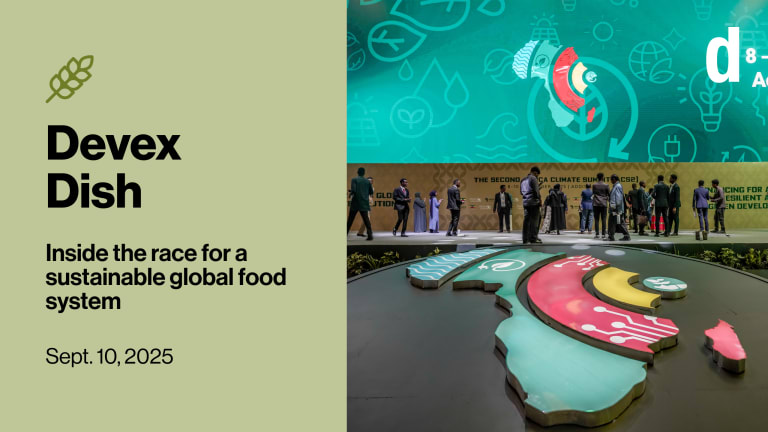
The African Union, which held its annual summit over the weekend, has declared this the “Year of Nutrition and Food Security.” As the country hosts of the summit, Ethiopia echoed these calls to increase access to food across the continent, releasing a statement on Sunday saying that addressing food and nutrition insecurity is “one of the priority development areas for the country.”
On Saturday, during the opening sessions of the summit, Ethiopian Prime Minister Abiy Ahmed, said that in recent years Ethiopia has made substantial investments in increasing crop production for farmers through enhanced irrigation efforts.
“Over the past year, acute food security in Africa has increased by over 60%,” he said. “With 60% of the world's arable land in Africa, it is of utmost importance that we need to use our natural assets to maximize agricultural output and feed our people without reliance on external assistance.”
But Ethiopia’s accomplishments in food security are overshadowed by the fact that more than 9 million people are in need of food aid in the northern part of the country, where the 15-monthslong conflict with the Tigray People’s Liberation Front has left more people facing famine-like conditions than the rest of the world combined.
Aid workers have not been able to provide food aid to huge swaths of the region, as the fighting continues, and the government has implemented a de-facto blockade, which has restricted banking services, as well as the movement of humanitarian cargo and fuel. Aid workers have limited stocks of both food and the fuel needed to deliver it.
“All food partners in Tigray are operating on credit, and some, particularly local non-governmental organizations, have not been able to pay their staff salary since June 2021. If access to cash remains severely restricted, partners might be forced to stop operations or [lose] manpower,” according to the United Nations Office for the Coordination of Humanitarian Affairs.
There are an estimated 56,000 severely malnourished children in Tigray, but the U.N. said there is no supply of nutritional supplements to treat these children.
In his address on Saturday, Prime Minister Abiy Ahmed pointed to COVID-19, floods, drought, desert locusts, and other climate-related natural disasters as the root causes of food insecurity, but failed to name conflict.

More reading:
► Will Africa’s year of nutrition bear fruit? (Pro)






